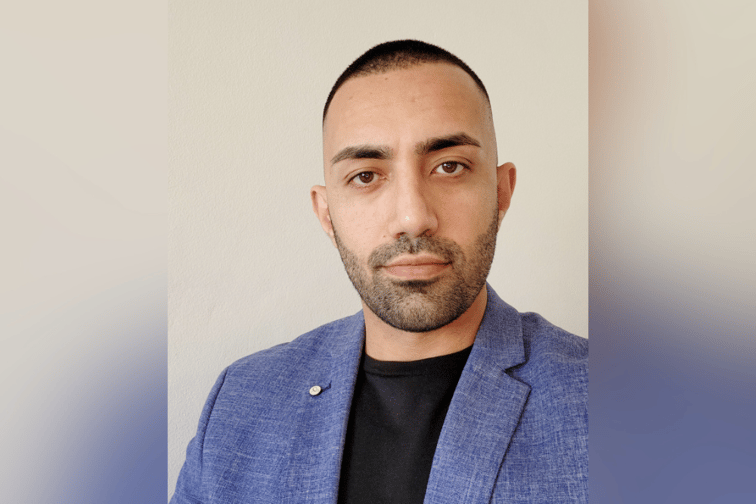

The key to finance broking is understanding how to strike a balance between the competing aspects of the role, according to finance specialist Fabs Aria.
Aria (pictured above), who has held various roles in credit, sales, banking, and brokering throughout his career and currently serves as a BDM for Greenlight Auto Loans, shared that in his tenure as a Pepper Money BDM, "a wise man" once told him that the key to the industry was finding balance.
“I didn't grasp this concept well at the time, but having been through royal commissions, regulatory changes and economic turbulence, I appreciate this concept more than ever,” Aria said.
“Balance between risk taking and risk prevention. Balance between advocating for your client but also adhering to lending and regulatory standards. Balance within yourself. You may lose a deal or a client here and there but in the long run the returns are exponential.”
The balance between risk-taking and risk minimisation
Aria initially “stumbled” into finance after a friend landed him a contact centre role at NAB. Quickly, his budding passion was noticed by senior management, and he transitioned into a lending specialist role focusing on frontline sales.
“In my early 20s, I was a bit more adventurous, risk-taking, and impulsive. I became deeply immersed in the world of sales,” Aria said.
“I believed that excelling in this role meant focusing solely on getting the highest number of deals and converting every opportunity that came my way. I was aggressive when it came to advocating for my clients and thought there was a dichotomy between sales and credit, as if the credit side was against me.”
Aria said it took him some time working in various companies to grasp the continuity of concepts in finance.
The key revelation was the need to find equilibrium between risk-taking and risk minimisation, particularly from a broker's perspective.
He said the key was to strike a balance between risk-taking and risk minimisation, particularly from a broker's perspective.
“I came to understand that every finance application involved the lender taking a calculated risk, expecting repayment in any way possible. But as a broker, it wasn't just about advocating for the client – it also meant adhering to regulatory standards and the specific policies set by the lenders themselves,” Aria said.
For Aria, achieving the right balance was crucial.
“Some brokers get overly engrossed in advocating for their clients, attempting to submit every application without due consideration, resulting in strained relationships and tension with the lenders. This lack of respect for the credit assessor’s authority can be detrimental,” he said.
On the other hand, Aria said there were brokers who shied away from taking any risk, overthinking every aspect, and assessing applications with more intensity than even the assessor themselves.
“As a finance broker, my job was to advocate for my clients’ finance applications while also mitigating the risk that the lender took on when lending money to a specific client or profile. It’s about ensuring both parties understand each other.”
Achieving balance in body and mind
In a profession that may not demand labour-intensive physical work, it's easy for the mind to wander while tackling the daily tasks of writing applications and crunching numbers.
“Spending the day writing applications and crunching numbers can be monotonous, and the worst part is waiting anxiously for the lender’s response and dealing with unexpected challenges,” Aria said.
To combat this, Ara said remaining physically and mentally fit was “crucial”.
“It's not about becoming a superstar athlete but engaging in daily exercise benefits both the mind and body,” he said.
“When I'm fit and healthy, I can approach clients and lenders with a clearer mind and a more positive mood. Taking care of my diet and exercising helps me think more sharply and feel elevated in my overall demeanour.”
Another space where Aria has found balance is by continuing education. While he acknowledged that a tertiary degree in finance didn’t define a broker, Aria said continued education had its merits and urged others to think about taking it up.
“For me personally, my curiosity and passion to understand the theoretical components of finance led me to pursue academic work. I'm currently studying for my master’s in economics, which allows me to grasp the bigger picture beyond just individual clients,” Aria said.
“Understanding macroeconomic variables helps me frame clients’ objectives and solutions in a broader context, which I feel like my clients appreciate.”
Looking back
Looking back at his younger years, Aria said he could see how his perspective had changed and urged other young brokers to consider their trajectory.
“I thought it was all about pushing as many deals as possible and letting credit handle the rest. However, I've learned that taking that approach can lead to declined loans, reduced conversion rates, and potential fraud issues,” Aria said.
“It's essential to consider clients' short-term and long-term objectives and guide them towards the right solutions. Misplacing them in the wrong product may result in clawbacks and complaints down the line. So now, I strive to strike a better balance, ensuring that my clients' needs are met and avoiding potential pitfalls in the long run."
How do you find balance in broking? Comment below.
